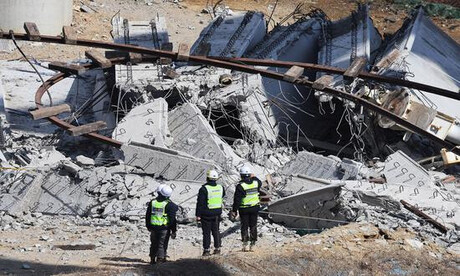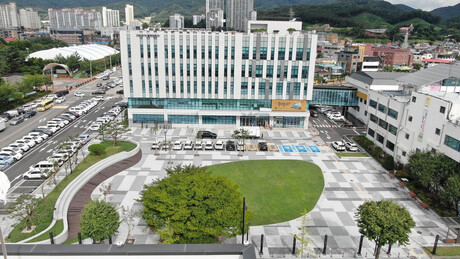
BUENOS AIRES - Argentina's state-owned energy giant YPF has announced a significant surge in its first-quarter performance for 2025, primarily fueled by increased production in the Vaca Muerta shale region. According to a press release issued by YPF on May 7th, shale oil production in Vaca Muerta reached an average of 147,000 barrels per day between January and March, marking a substantial 31% increase year-over-year and a 7% rise compared to the previous quarter.
YPF emphasized the growing importance of unconventional resources in its production portfolio, stating, "Today, shale oil represents 55% of YPF's total oil production."
The company also reported impressive export figures. Oil exports for the first quarter saw a 34% increase compared to the same period last year, averaging 36,000 barrels per day. This growth in exports is largely attributed to the expanded shale oil production in the Vaca Muerta.
These robust quarterly results align with the progress of several strategic projects within the Vaca Muerta area, including the Vaca Muerta Sur project, a collaborative effort involving major energy players such as Chevron and Shell. A key component of this project is the construction of a 437-kilometer pipeline, which is expected to further boost production in the future.
Notably, the Vaca Muerta region witnessed a record-breaking month for hydraulic fracturing in April. YPF spearheaded this activity, completing 931 fracturing stages, which accounted for over 40% of the total monthly operations. This highlights the increasing significance of Vaca Muerta in Argentina's energy sector as both domestic and international companies expand their operations.
Beyond the energy sector's growth, the thriving activity in Vaca Muerta is projected to positively impact Argentina's ongoing economic recovery. International credit rating agency Moody's has also acknowledged this potential positive effect in its inflation outlook report for Argentina.
The Vaca Muerta formation is estimated to hold 16.2 billion barrels of recoverable shale oil and 8.7 trillion cubic meters of shale gas. Following the inauguration of the new business-friendly government led by President Javier Milei, Vaca Muerta is positioning itself as a crucial new source of oil and natural gas for Argentina, paving the way for the country to potentially become a liquefied natural gas (LNG) exporter.
Vaca Muerta Brightens Argentina's Energy Future
The Vaca Muerta shale deposit, nestled beneath the vast Patagonian landscape of Argentina, is emerging as more than just an energy resource; it is becoming a vital key to Argentina's economic resurgence and energy independence. The recent strong first-quarter performance of Argentina's state oil company YPF in 2025 clearly demonstrates the realization of Vaca Muerta's potential.
YPF's report reveals an impressive 31% year-over-year growth in shale oil production in the Vaca Muerta region, spearheading a dynamic shift in Argentina's energy industry. This figure now accounts for over half of YPF's total oil output, indicating the successful implementation of the company's strategy to actively develop unconventional resources rather than solely relying on traditional oil fields.
The export sector's performance is even more remarkable. Fueled by the surge in shale oil production, oil exports jumped by 34% compared to the previous year, opening up the possibility for Argentina to strengthen its position as an energy exporter. This news offers a welcome respite for Argentina's chronically foreign currency-strapped economy, as increased energy exports can lead to higher national revenue and contribute to economic stabilization.
Vaca Muerta's potential extends beyond mere production increases. Large-scale projects undertaken by YPF in collaboration with global energy giants like Chevron and Shell are expected to further elevate the region's production capacity. The Vaca Muerta Sur project, which includes the construction of a significant 437-kilometer pipeline, represents a crucial step in building the necessary infrastructure to efficiently transport and export the produced energy.
The record-breaking hydraulic fracturing activity in the Vaca Muerta region in April further underscores this growth trajectory. YPF's leading role in completing 931 fracturing stages demonstrates a proactive effort to maximize the region's production potential. This not only appeals to domestic companies but also attracts foreign investors, potentially creating a positive cycle of investment and growth in the energy sector.
The development of Vaca Muerta is anticipated to generate positive ripple effects throughout the Argentine economy. As Moody's analysis suggests, increased energy production leads to higher exports, boosting foreign currency earnings and contributing to the nation's fiscal health and economic recovery. Furthermore, the growth of the energy sector can stimulate the development of related industries and create new employment opportunities.
Moreover, Vaca Muerta boasts vast reserves of unconventional energy resources, estimated at 16.2 billion barrels of shale oil and 8.7 trillion cubic meters of shale gas. This provides Argentina with a long-term foundation for achieving energy self-sufficiency and potentially becoming an LNG exporting nation. This is particularly significant for Argentina, which has historically relied on energy imports, enhancing its national security.
The pro-business policies of the new Argentine government led by President Javier Milei are also creating a favorable environment for the development of Vaca Muerta. The government's active support and efforts to attract investment are expected to usher in a new era for Argentina's energy industry, centered around Vaca Muerta.
While challenges such as environmental concerns and infrastructure development remain, the proactive investment and technological development efforts of companies like YPF, coupled with supportive government policies, suggest that Vaca Muerta can indeed become a key driver of Argentina's energy security and economic growth. YPF's strong first-quarter results further solidify this optimistic outlook, reaffirming Vaca Muerta as a beacon of hope for Argentina's future.
[Copyright (c) Global Economic Times. All Rights Reserved.]





























